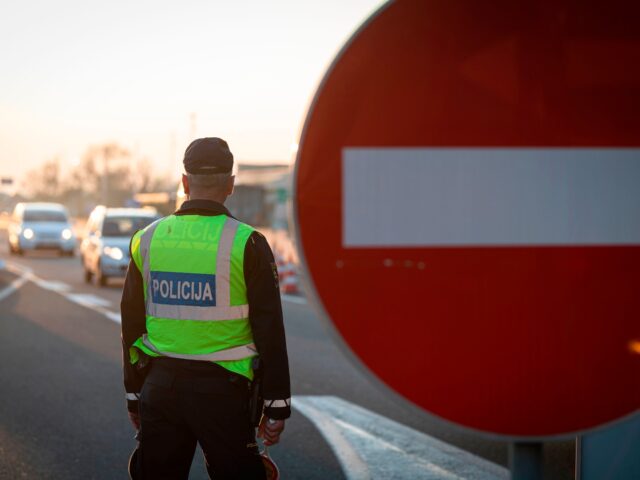LJUBLJANA, Slovenia (AP) – Slovenia said Thursday it will introduce border checks with neighboring Hungary and Croatia following Italy’s decision to do the same with Slovenia because of security concerns due to violence in the Middle East.
The government said border controls will be introduced on Saturday and last for at least 10 days. Italy on Wednesday said it will suspend an open-border agreement with Slovenia, also on Saturday and for 10 days.
The decisions reflect increasing security concerns in Europe because of the war between Israel and Hamas. European Union interior ministers on Thursday debated how to manage the impact of the war on the 27-nation bloc after a firebomb assault on a Berlin synagogue and killings in Belgium and France by suspected Islamic extremists.
EU Home Affairs Commissioner Ylva Johansson said in Luxembourg that the commission is looking into the issue of internal border checks, which she described as one of the challenges of the Schengen area.
“Even if it is justified by severe things, internal security or illegal border crossing, internal border controls also hamper free movement,” said Johansson. “We need to avoid it.”
The shooter in the Belgian attack, a Tunisian national, had been denied residency in four European countries and was issued a deportation order from Belgium in 2021, but disappeared from sight. Only after he killed two Swedish men on Tuesday did officials manage to track him down. He was shot dead by police as they tried to arrest him.
Slovenia’s government cited heightened its level of security alert due to surging organized crime in the region and the escalation of tensions in the Middle East, the STA news agency reported.
Members of various terrorist and extremist groups are withdrawing from conflict zones “to avoid the consequences of their actions or even with the intention of jeopardizing our security and stability,” Slovenia’s government said, according to the STA report.
Slovenia’s Interior Minister Bostjan Poklukar presented the details at the EU meeting in Luxembourg. He said authorities will set up special checkpoints for EU citizens and local residents living in the border area.
Belgium and Sweden Call for Stronger Deportation Powers Following Suspected Islamist Terror Attackhttps://t.co/AEn2hDJ9pu
— Breitbart London (@BreitbartLondon) October 18, 2023
Slovenia, Italy, Croatia and Hungary are all among the 27 countries that belong to the Schengen area, the world’s largest free travel zone. The Schengen nations can temporarily reintroduce border controls “in the event of a serious threat to public policy or internal security.”
Péter Szijjártó, the foreign minister of Hungary’s staunchly anti-immigration government, attributed Slovenia’s decision to EU immigration policies that he said are endangering both the physical security and economic prosperity of European countries.
“Europe’s economy is suffering as border controls within the Schengen area hinder and slow down trade and the cross-border operations of businesses,” Szijjártó wrote on Facebook. “If Brussels does not change its migration policy, we could find ourselves where we do not want to be: in an era of Europe torn apart by old borders.”
In Zagreb, Croatia’s Prime Minister Andrej Plenkovi’c expressed hope the decision would be temporary. Such measures are not new, Plenkovi´c added, and are the result of “increased migration movement and (or) terrorism threat.”
“It must remain an exception,” said Plenkovi’c.
Italy’s Premier Giorgia Meloni´s right-wing government on Wednesday said authorities in the northeastern border region of Friuli-Venezia Giulia had identified 16,000 people so far this year who had entered Italy illegally across the Slovenian border.
That is in addition to the 140,000 migrant arrivals in Italy by sea, an increase of 85% over 2022.
Migrants arrive in Slovenia from both Croatia and Hungary after following the so-called Balkan land route from Turkey to Greece or Bulgaria, North Macedonia, Serbia and Bosnia. The Hungarian government in 2016 put up barbed-wire fences on its border with Serbia to stop the influx.
Other countries that are introducing border checks within Europe’s Schengen area include Denmark and Sweden, while France intends to keep checks in place until at least May 2024.
Macron Calls for ‘Ruthless’ Deportation of All Migrants with Ties to Islamic Extremism from Francehttps://t.co/z9bSjD6Nk9
— Breitbart London (@BreitbartLondon) October 16, 2023

COMMENTS
Please let us know if you're having issues with commenting.